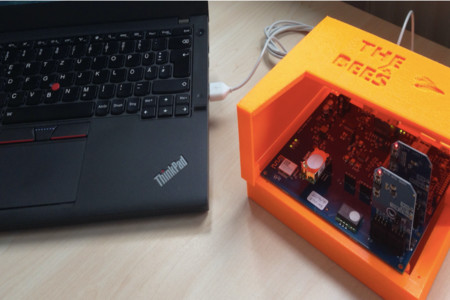
Overview
The majority of strategies to achieve energy-efficient buildings concerns technical mitigation measures. THE4BEES project, on the other hand, builds on the hypothesis that energy is consumed by people, not by buildings, and therefore both factors - people in interaction with technology - should be considered. It therefore focused on the behavioural changes of users in public buildings that are necessary to achieve a reduction in energy consumption. These changes were achieved by using innovative information and communication technologies (ICT), which were previously developed and identified by the project. Target groups in in schools, houses and factories tested the ICT applications to promote behavioural changes for energy efficiency and carbon footprint reduction.
Factsheet
- 2014 – 2020
- Low carbon
- Establish transnationally integrated low carbon policy instruments
-
- Group 9: To make the territory a model region for energy efficiency and renewable energy
- 12/2015
- 12/2018
- 2.900.412 EUR
- 2.290.449 EUR
Outcomes
-
Methodological framework for CCLabs
StrategyThis methodological guidelines help the co-creation-Labs to prepare their individual Action plan.THE4BEES project builds on the hypothesis: Energy is consumed by people rather than by buildings. To approach this hypothesis, the project focuses on behavioural change of users in public buildings. It is based on an inclusive collaborative approach traditionally addressed as open innovation. More specifically it introduces Co-creation labs, a form of labs evolving from the Living Labs methodology. CCLabs should be understood as an organizational form using the same principles and building upon the same methodological guidelines, but they differ one from another due to the different content and stakeholder reality, as well as the different groups they are addressing. The proposed methodological guidelines help the CCLabs to prepare their individual Action plan (CCLabs Plan D.3.1.2), where each co-creation reality is addressed more specifically. The Action plans serves as roadmaps for working with target groups and achieve project results. -
Knowledge base on efficient behaviours
ToolThis report present the theoretical background of behavioural change and different types of interventions to increase energy efficiency and foster lower carbon emission.The results are summarized in recommendations for ICT development. In addition, the focus is on THE4BEES four main target groups (students, private households, workers and tourists) and seven pilots, which are described and linked to the knowledge base. Households often are willing to behave in an energy efficient way, but concrete actions are not taken to the greatest extent possible. For organisations, often a "strategic" decision has to be made by decisions-makers. In the end it is the behaviour of students, workers, tourists and residents that will create the impact. -
Models and Recommendations for improvement of policies
StrategyThe policy recommendations dossier is one of the main outputs of the THE4BEES Project. It represents one of the most complete overview on the activities carried out within the project, the achieved results, the expected impacts, the gained knowledge and the recommendation for the next future.The policy recommendations dossier deals with the production and the exchange of knowledge. However, the knowledge produced and exchanged during the project’s life and, above all, its strategic use for the future (the so-called policy recommendations) is, in many cases, strictly connected to the activities developed within the project.


